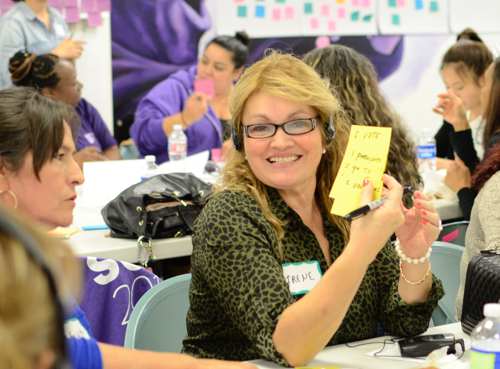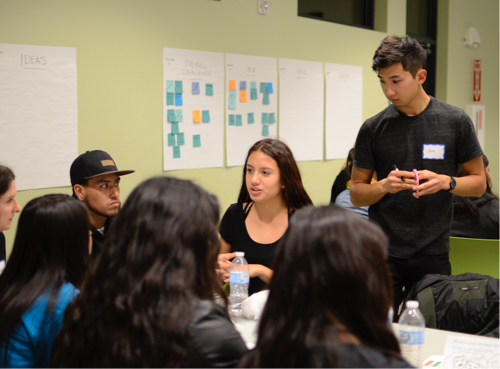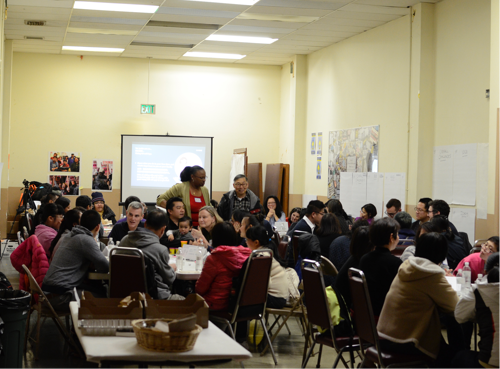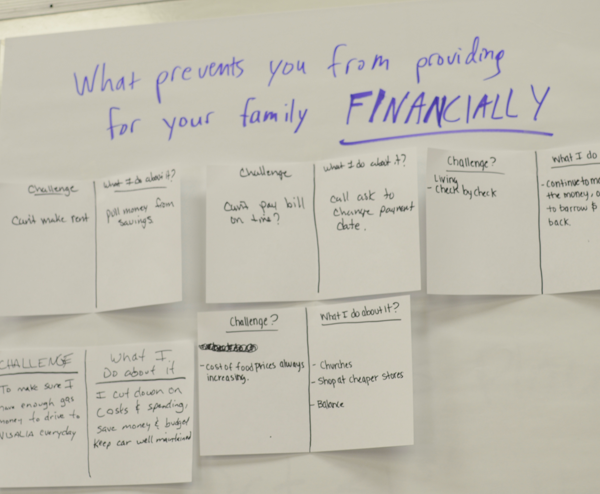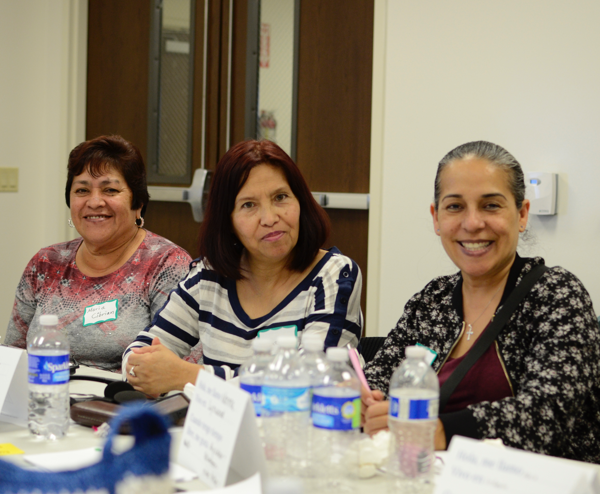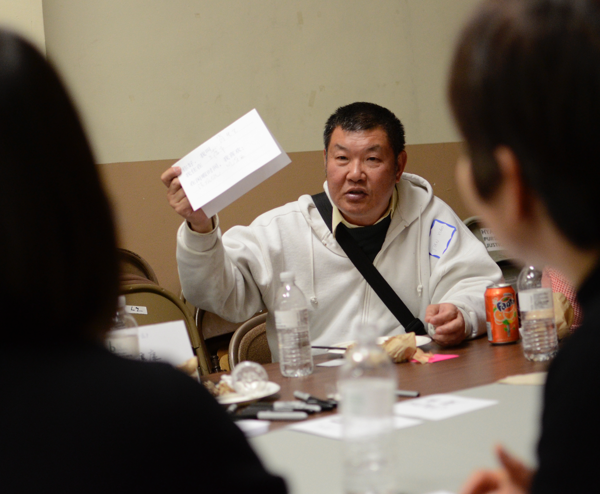The James Irvine Foundation
Creating durable impact in California through Community Listening Sessions.
city heights, san diego.
The room glowed with the warm light of the sun slipping beneath the ocean horizon. Points of light dotted the surrounding hills of San Diego. Our third Community Listening Session took place here, in City Heights, one of the most culturally diverse neighborhoods in San Diego.
A challenge went up. It read “my priorities are my family”. I added it to the mosaic of rich stories we were here to listen to. As the last light faded from the sky, the room was alive with stories of cultural diversity and prejudice, stories of moments of hardship and triumphs. One theme was universal: the hope for finding a better life for themselves and their family.
Our Goal
To begin to understand those who are working and struggling with poverty.
The James Irvine Foundation partnered with Gravitytank to help them redefine their grant making. I was part of a team of researchers and designers tasked with assignment of understanding the constituents of the organizations who are supported by the Irvine Foundation.
SECTION 01
Understanding the struggles modern Californians face, by going to them.
We used a mix of research methodologies in order to document and amplify participants’ voices. At the heart of our research we conducted multiple regional community listening sessions and in-home interviews.
Prioritizing Primary Research
We focused on connecting directly with Californians.
From Oakland to El Centro, we journeyed across the state conducting multiple community listening sessions, in-depth interviews, speaking with community leaders, and also broadening our reach through dScout, a mobile research app.
9
Cities
400+
People
17
In-depth Interviews
Prioritizing Primary Research
Community Listening Sessions.
The Community Listening Sessions were held in community centers, churches, union halls, and schools across six regions. Each session was highly interactive, blending Q&A, group discussion, identifying patterns, brainstorming, and reflection.

Prioritizing Primary Research
In-Depth interviews
After some listening sessions, we spent 60–90 minutes talking with one or more Californians in their homes or at work. In total, we spoke to 17 individuals in-depth. These conversations gave deeper insights into their everyday lives.

SECTION 02
Learning through capturing stories.
From our multiple listening sessions and in-depth interviews, we learned in detail the incredible problems Californians face today.
I feel like we struggle now. It seems like my life used to have less stress and less hours. Now, I work more hours and have more stress.
What we learned
From our research, we heard 6 themes.
After listening to more than 400 people from across the state, it became clear that opportunities abound in California, but those opportunities feel unattainable for many of the participants we heard from.
SECTION 03
Transforming the voices we heard into a rich shareable resource.
We took what we heard and found five themes that capture the challenges of today’s Californians.
Final Deliverable
Elevating voices.
From simple decisions like writing challenges in first person to providing snippets of raw interview transcripts, we strove to be authentic to the voices of the people we talked with.
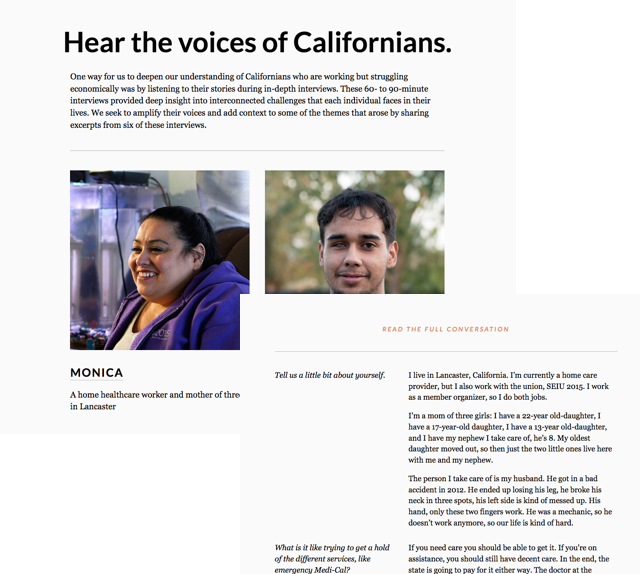
Final Deliverable
Stories over statistics.
Numbers and stats are great for showing scale, however by prioritizing stories over statistics we were able to better show what people’s lives are like and what they care about.

Final Deliverable
Rich media.
Media like video and photography were incredibly important tools to capture and share the rich stories of these Californians.



